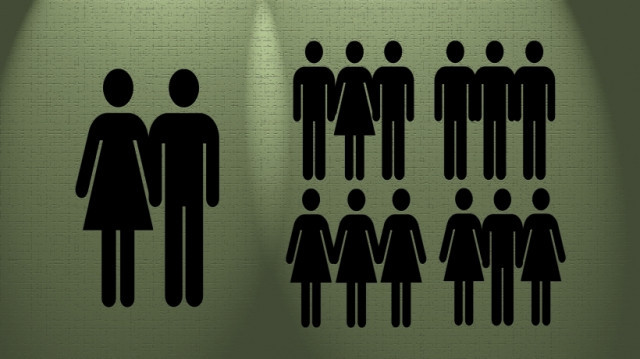[This article requires a general understanding of developmental stages in egoic, emotional, or moral developmental models, distinguished by researchers such as Graves, Kohlberg, Gilligan, etc.]
There is often talk in developmental, transformational, and alternative communities about how polyamorous and/or “open” relationships are more “evolved”. More evolved than…say the conventional forms of monogamy and marriage.
This is an easy trap to fall into, as poly- relationship forms are certainly post-conventional. There was a time when I agreed with this thinking. I used to think polyamory [distinct from what I often see which is “poly-sexual”] was the more "evolved" as is it beyond traditional structures [trans-rational and post-conventional] and by its very nature requires, and often demands advanced communication skills, a solid sense of self, a lack of attachment and more spontaneous and flexible structures than monogamy.
Plainly put—it is more challenging. But that is if it is played clean, which is all well and good on paper...but how often are poly- relationships played clean and played well? Well, not often. In my experience, they are sometimes a morass of jealousy, fear, anger, heartbreak, etc.
Additionally, the truth is, monogamy requires other sets of skill development which while different, are equally as challenging. AND monogamy requires all the aforementioned sets of skills and development if it is to be done well and stay alive and thrive. That is to say, high self-esteem and a solid sense of self, advanced communication skills, and agreements between the parties that allow for play and spontaneity as well as growth and evolution within the relationship itself. So...my thinking has since shifted.
In my experience, we cannot assess depth and evolution, using any developmental stage conception, based on form and be accurate very often. Just using the simple three-stage model I often employ of pre-rational or pre-conventional, rational or conventional, and trans-rational or post-conventional, we can see very quickly that the idea of form does not map across to any stage or level. Here is the crux of my current thinking.
We can all experience monogamy from a pre-rational, rational, or trans-rational place. And we can all experience poly- from a pre-rational, rational, or trans-rational place. In other words, form does not map across to stage of evolution with any real predictability of accuracy. Simultaneously, we can all be drawn towards one form or another…or another, as the result of our stage of development, but again, it is no guarantee which form we will be drawn to.
The key is in what the individual motivations are for seeking any particular form.
To briefly and quickly flesh this out with some big picture generalizations: we could be drawn to monogamy out of fear and attachment—a need to “stake my claim”, or out of a need to have the illusion of safety and security a monogamous commitment provides [pre-rational], or out of a desire for a practical partnership and solid family structures for children We want to have [rational], or out of a desire to explore my depths with one person as a spiritual practice for the remainder for my life [trans-rational].
On the other end of the form spectrum, We may choose poly- out of a desire to get laid as much as possible with as many people as possible [pre-rational], or out of an acceptance that We feel more aspects of myself when reflected in intimacy with more people and that better suits me [rational,] or as an expression of being Spirit at play--as an outgrowth of my experience as a spiritual being and out of a desire to explore freedom, spontaneity, and love of all sentient beings in a consensual and limitless way [trans-rational].
So we can not claim anything with respect to form of the relating being more or less evolved. Of course I wish it were simpler, but assessing evolution depends on each individual, how they are experiencing the relating and what their motivations are for being drawn to one form or another to actually assess evolution. Having tried all forms, including marriage, I like all forms for different reasons. But that is just me.
The question to ask is not which form is more evolved, but rather--are you choosing the form consciously? Are you clear about your experience of the relating and the motivations for your desires or draw to the form? Are you evolving consciously in the form of your choosing? These questions we can answer. Unfortunately, the question of which form is “more evolved” than another is a slippery slope that can easily fall into a trap of superiority and ego-centric musing.
And no one wants that…consciously.

